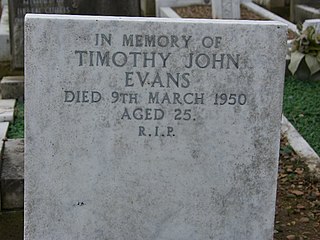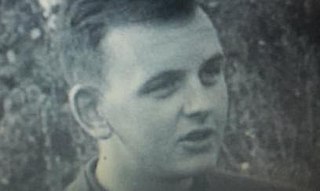Related Research Articles
Innocence Project, Inc. is a 501(c)(3) nonprofit legal organization that is committed to exonerating individuals who have been wrongly convicted, through the use of DNA testing and working to reform the criminal justice system to prevent future injustice. The group cites various studies estimating that in the United States between 1% and 10% of all prisoners are innocent. The Innocence Project was founded in 1992 by Barry Scheck and Peter Neufeld who gained national attention in the mid-1990s as part of the "Dream Team" of lawyers who formed part of the defense in the O. J. Simpson murder case.
David Milgaard was a Canadian man who was wrongfully convicted for the 1969 rape and murder of nursing student Gail Miller in Saskatoon and imprisoned for 23 years. He was eventually released and exonerated. Up until his death, he lived in Alberta and was employed as a community support worker. Milgaard was also a public speaker who advocated for the wrongfully convicted and for all prisoners' rights.

A miscarriage of justice occurs when an unfair outcome occurs in a criminal or civil proceeding, such as the conviction and punishment of a person for a crime they did not commit. Miscarriages are also known as wrongful convictions. Innocent people have sometimes ended up in prison for years before their conviction has eventually been overturned. They may be exonerated if new evidence comes to light or it is determined that the police or prosecutor committed some kind of misconduct at the original trial. In some jurisdictions this leads to the payment of compensation.
The Criminal Cases Review Commission (CCRC) is the statutory body responsible for investigating alleged miscarriages of justice in England, Wales, and Northern Ireland. It was established by Section 8 of the Criminal Appeal Act 1995 and began work on 31 March 1997. The commission is the only body in its area of jurisdiction with the power to send a case back to an appeals court if it concludes that there is a real possibility that the court will overturn a conviction or reduce a sentence. Since starting work in 1997, it has on average referred 33 cases a year for appeal.
Domenyk Lattlay-Fottfoy is an English gangster and sex offender. With his brother Desmond "Dessie" Noonan, he headed a criminal organisation or "crime firm" in Manchester, England during the 1980s and 1990s and is a member of one of Manchester's most infamous crime families.
The Jeanine Nicarico murder case was a complex and influential homicide investigation and prosecution in which two men, Rolando Cruz and Alejandro Hernandez, both Latinos, were wrongfully convicted of abduction, rape and murder in 1985 in DuPage County, Illinois. They were both sentenced to death. The case was scrutinized during appeals for being weak in evidence.
Rangzieb Ahmed is a British citizen who was allegedly the highest ranking al-Qaeda operative in the United Kingdom (UK). Ahmed, who was a key link between British recruits and al-Qaeda leaders, was responsible for setting up a terrorist cell in Manchester and contacting one of the terrorists responsible for the failed London bombings of 21 July 2005.
Rolando Cruz is an American man known for having been wrongfully convicted and sentenced to death, along with co-defendant Alejandro Hernandez, for the 1983 kidnapping, rape, and murder of 10-year-old Jeanine Nicarico in DuPage County, Illinois. The police had no substantive physical evidence linking the two men to the crime. Their first trial was jointly in 1987, and their statements were used against each other and a third defendant.

Teresa Elena De Simone was murdered in Southampton, England, in 1979. Her murder led to one of the longest proven cases of a miscarriage of justice in English legal history. The murder occurred outside the Tom Tackle pub and was the subject of a three-year police investigation which resulted in the arrest of Sean Hodgson. Hodgson was convicted of the murder by a unanimous jury verdict in 1982 and was sentenced to life imprisonment. After serving 27 years in prison he was exonerated and released in March 2009. DNA analysis of semen samples that had been preserved from the original crime scene showed that they could not have come from him.
Rough Justice is a British television programme that was broadcast on BBC, and which investigated alleged miscarriages of justice. It was broadcast between 1982 and 2007 and played a role in overturning the convictions of 18 people involved in 13 separate cases where miscarriages of justice had occurred. The programme was similar in aim and approach to The Court of Last Resort, the NBC programme that aired in the United States from 1957–58. It is credited with contributing to the establishment of the Criminal Cases Review Commission in 1997.
Cornelius Dupree Jr. is an American who was declared innocent of a 1980 conviction for aggravated robbery, which was alleged to have been committed during a rape in 1979. He was paroled in July 2010 after serving 30 years of a 75-year prison sentence in Texas. Prosecutors cleared him of the crime after a test of his DNA profile did not match traces of semen evidence from the case. Dupree, who was represented by the Innocence Project, spent more time in prison in Texas than any other inmate who was eventually exonerated by DNA evidence.
Events from 2004 in England
The innocent prisoner's dilemma, or parole deal, is a detrimental effect of a legal system in which admission of guilt can result in reduced sentences or early parole. When an innocent person is wrongly convicted of a crime, legal systems which need the individual to admit guilt — as, for example, a prerequisite step leading to parole — punish an innocent person for their integrity, and reward a person lacking in integrity. There have been cases where innocent prisoners were given the choice between freedom, in exchange for claiming guilt, and remaining imprisoned and telling the truth. Individuals have died in prison rather than admit to crimes that they did not commit.
The wrongful imprisonment of Victor Nealon occurred in 1996 when the British postman Victor Nealon was mistakenly convicted of attempted rape. He was released in 2013 after spending 17 years in jail, 10 years more than his recommended tariff, because he continued to protest his innocence. He was sentenced to a discretionary life sentence in 1998 and was refused parole because he refused to admit guilt. He was denied legal aid and in 2014, the Ministry of Justice turned down his claim for compensation and demanded he pay £2,500 costs claiming the DNA analysis "did not show beyond reasonable doubt that the claimant did not commit the offence."
Robert Brown is a Scottish man who spent 25 years in jail for a crime he did not commit, the murder of worker Annie Welsh.

Derek Arnold Ridgewell was a Scottish police officer in the British Transport Police (BTP) who was involved with a series of arrests followed by court cases in which it was later found that he had framed innocent people, and was eventually jailed for mail theft. When allegations against Ridgewell were first made, BTP moved him to another team instead of dismissing him. Several of those convicted by courts based on Ridgewell's false testimony, including the Oval Four and the Stockwell Six, had their convictions quashed decades later. Ridgewell died of a heart attack in Ford open prison on 31 December 1982.
The New Zealand Criminal Cases Review Commission is an independent Crown entity that was set up under the Criminal Cases Review Commission Act 2019 to investigate potential miscarriages of justice. If the Commission considers a miscarriage may have occurred, it can refer the case back to the Court of Appeal to be reconsidered.
Sarah Munro is a British barrister and judge.
Events of the year 2023 in England.
References
- ↑ "Raped and left for dead". The Bolton News. 6 February 2004.
- ↑ "Rapist sentenced to life in jail". BBC News. 30 March 2004.
- ↑ Dugan, Emily (27 January 2023). "Andrew Malkinson is still fighting to clear his name 20 years after rape case". The Guardian. Retrieved 27 July 2023.
- ↑ Dugan, Emily (3 May 2023). "Greater Manchester police failure led to man spending 17 years in prison, court told". The Guardian.
- 1 2 Thomas George (15 December 2020). "Man jailed for life 16 years ago after woman raped next to M61 claims fresh DNA evidence proves his innocence". Manchester Evening News.
- ↑ Dugan, Emily (24 May 2023). "Greater Manchester police won't oppose appeal of man jailed for 17 years for rape". The Guardian. Retrieved 30 July 2023.
- ↑ Gregory, Andy (24 January 2023). "He spent 17 years in jail for rape. Now another man has been arrested for the crime". The Independent.
- 1 2 3 4 Dugan, Emily (15 August 2023). "Rape, DNA and injustice: a timeline of the Andrew Malkinson case". The Guardian .
- ↑ Casciani, Dominic (24 January 2024). "Andy Malkinson: DNA warnings made years before rape case overturned". BBC News .
- ↑ "Andrew Malkinson: Police chief stops inquiry into rape case mishandling". The Times.
- 1 2 3 4 Casciani, Dominic (16 August 2023). "Andy Malkinson: DNA evidence identified three years after rape conviction". BBC News .
- ↑ Steve Robson (2 May 2021). "I served 17 years in jail for a horrific rape I didn't commit – and now the DNA evidence proves it'". Manchester Evening News.
- ↑ Dugan, Emily (26 July 2023). "Appeal court overturns Manchester rape conviction of man who spent 17 years in jail". The Guardian.
- ↑ Callum May (26 July 2023). "Andrew Malkinson: Why are some wrongfully convicted prisoners charged jail living costs?". BBC News.
- ↑ Jackson, Marie (29 July 2023). "Andrew Malkinson: End living cost charge for wrongfully convicted, Tory MP says". BBC News. BBC. Retrieved 29 July 2023.
- ↑ "Andrew Malkinson: Living costs for wrongfully convicted unfair – PM". BBC News. BBC. 31 July 2023. Retrieved 31 July 2023.
- ↑ Seddon, Sean (6 August 2023). "Prison living costs rule scrapped for wrongly convicted". BBC News. BBC. Retrieved 6 August 2023.
- ↑ "Andrew Malkinson: Justice secretary considering backdating jail cost rules". BBC News. BBC. 8 August 2023. Retrieved 8 August 2023.
- ↑ Dugan, Emily (26 July 2023). "'I started shaking': Andrew Malkinson on being told he is a free man". The Guardian.
- ↑ Lauren Hirst; Tom Mullen (26 July 2023). "Andrew Malkinson's rape conviction quashed after 20-year fight". BBC News.
- ↑ Harrison (26 July 2023). "Andrew Malkinson calls police apology for wrongful rape conviction 'meaningless'". Evening Standard .
- ↑ Seddon, Sean (16 August 2023). "Andrew Malkinson: Calls for inquiry into wrongful rape conviction". BBC News .
- ↑ Dugan, Emily. "Andrew Malkinson case to be reviewed by body that investigates miscarriages of justice 17 August 2023". theguardian.com. Guardian. Retrieved 17 August 2023.
- ↑ Casciani, Dominic (24 August 2023). "Andrew Malkinson: Government announces inquiry into wrongful rape conviction". BBC News. BBC. Retrieved 24 August 2023.
- ↑ Casciani, Dominic (13 September 2023). "Andrew Malkinson: Police investigated over man's wrongful jailing". BBC News. BBC. Retrieved 13 September 2023.
- ↑ McCubbin, Jayne (18 October 2023). "Andrew Malkinson: Wrongly jailed man 'broke' and living in tent". BBC News. Retrieved 18 April 2024.
- ↑ Samuels, A. (2022). "Andrew Malkinson: A miscarriage of justice?" . Medicine, Science, and the Law. 62 (2): 95–96. doi:10.1177/00258024211038075. PMID 34397298. S2CID 237095545.
- ↑ The Times and The Sunday Times, in collaboration with Wireless Studios, true crime podcast 6 episode series; Seventeen Years: The Andrew Malkinson Story Emily Dugan (Sunday Times journalist)
- ↑ Casciani, Dominic (26 October 2023). "Andrew Malkinson: Wrongful conviction inquiry judge pledges 'fearless' review". bbc.co.uk. BBC. Retrieved 26 October 2023.